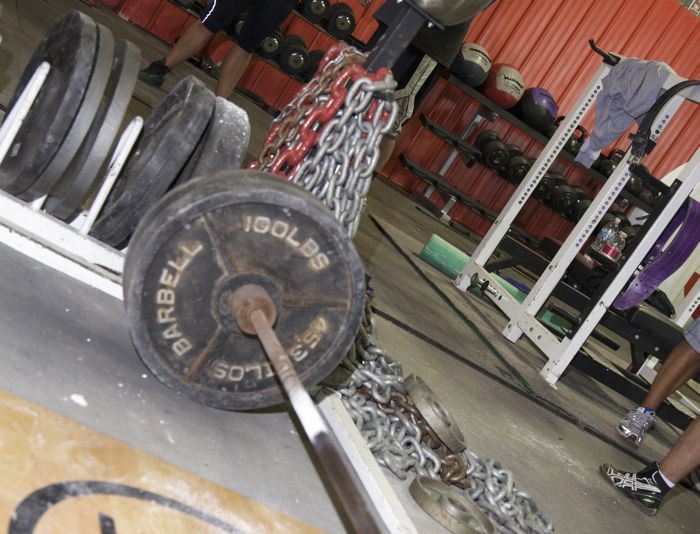
Why? Because it works!
Picture the scene—you're in a presentation listening to a coach talk about his training methodology. The nerdy young buck at the back of the room raises his hand in response to the presenter's statement and asks something along the lines of "Why do you use back squats and deadlifts instead of single leg wobbly board holds and Theraband hip extensions?"
In response to this, the presenter pauses to consider the apparent naivety of the question before answering in a blunt and assertive manner "Because they get you stronger you little b***h!”
Sound familiar to you? OK, well in the example above, the answer is pretty clear, but what about the questions that are tougher than that? If you work in strength and conditioning and you make some attempt to stay up to date with current trends and research in the industry, chances are you have come across the person who responds to the awkward question with something like the statement above. However, as a coach, is it OK to rely on this type of response to a question regarding the rationale of your programs, sessions, philosophy, or whatever else can be called into question?
F or me, as always, it depends. There are certain questions with pretty solid answers that everyone should be expected to know the correct answer to and implement in their programs:
or me, as always, it depends. There are certain questions with pretty solid answers that everyone should be expected to know the correct answer to and implement in their programs:
- “How many reps and sets should be used for strength, power endurance, etc.?”
- “What work to rest ratio should be used for speed/plyometrics?”
- “Is static stretching appropriate immediately before power training?”
- “If I give that girl my best smile, will I end up with a smile on my face?”
The last one was a joke (it’s a definite yes), but the rest are pretty much clear cut these days and should be administered accordingly. However, there are many things we use every day that don't have solid scientific backing, which makes questions about our programs difficult to answer. For example:
- “Why do you put glute activation work into that session?”
- “Why would you choose to do contrast or complex training and can you justify the rest interval you're using?"
- “Why do you make your athletes take vitamin D or X,Y,Z supplement?”
The list goes on and on, and the answer to these questions will generally be an opinion rather than a fact backed up by hard scientific evidence. I think there is a trend in strength and conditioning to come down hard on people who don’t come from a rock solid science based philosophy of program design and implementation.
My feeling is that as long as you can come up with a rationale for the exercise/supplement/program design that you're prescribing as the coach, it's OK. It's OK because we're coaches after all, aren’t we? And it's OK to try things out and be creative. We need to ideally be in a position to measure improvements subjectively and objectively if possible as a result of these interventions whether it's through performance gains or movement analysis. However, sometimes you just have to go with your opinion that something works and run with it. I’m certainly not a scientist. I love the science behind training and make an attempt to stay up to date with the research, but in truth, it would be detrimental to my programs to take the pure science approach because I would have to take out some things that I really believe in as a coach. Heck, is there even a solid evidence base for foam rolling? There's certainly a rationale for it, but can this be backed up with hard evidence? The evidence that most people would use is that their athletes feel much better for doing it and it seems to improve movement quality as a result. That’s good enough for me!
As coaches, we need to stay on the cutting edge of the research and use it to guide and inform our practice rather than dictate what we do and don’t prescribe. But don’t forget that it's our coaching that gets the results, not the science. It's our coaching that improves people and it's our creativity that provides the scientists with things to investigate. The coaches lead the scientists, not the other way round. That's the way it always should be. Keep training hard!
Brendan Chaplin is the CEO and founder of Strength and Conditioning Education, the UK's largest S&C coaching and training company. You can reach Brendan on all social platforms @brendanchaplin where he will be happy to answer your questions and take your feedback.








